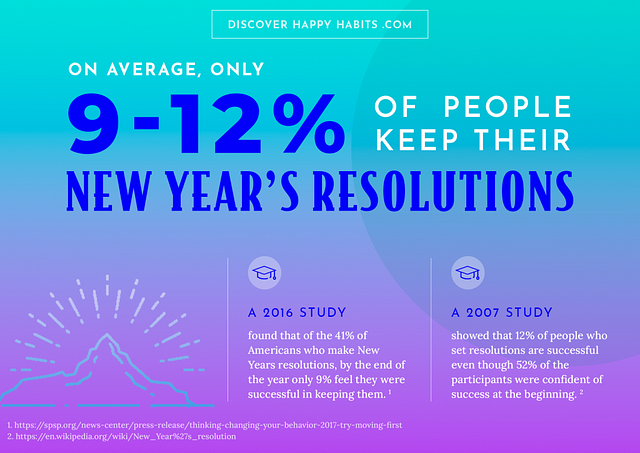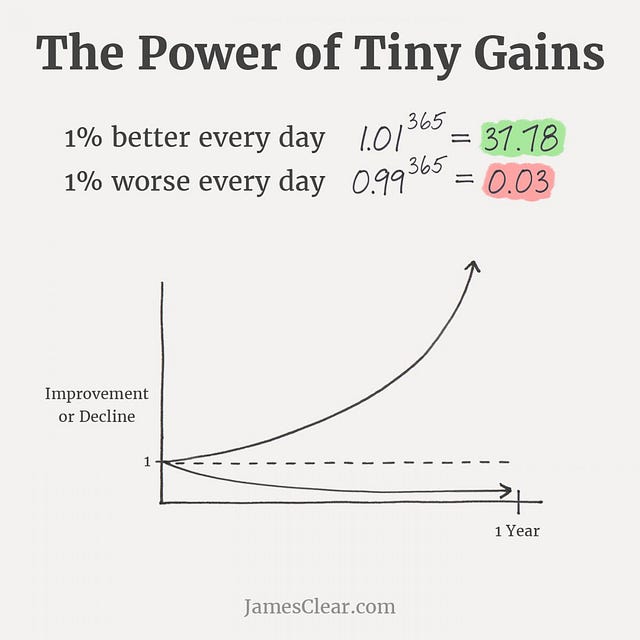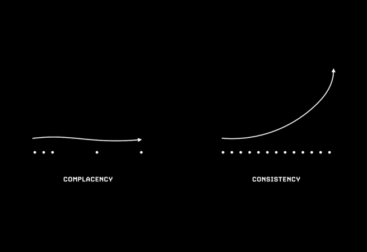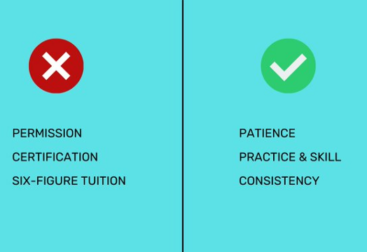New year’s resolutions are a great way to make positive change, here’s why you’ve failed them in the past and how you can change that this time!
It’s that time again… the time when we all make grand commitments of self-improvement to ourselves. As we enter a new year, it’s natural to feel motivated to make positive changes in our lives. But let’s be honest, how many of us actually stick to our New Year’s resolutions? If you’re like most people, you probably start the year with good intentions, only to fall back into old habits within a few weeks.

According to studies, over 80% of New Year’s resolutions fail, and 25% don’t even make it through the first week. That’s a pretty discouraging statistic, but it doesn’t have to be that way. With a little planning and some strategy, you can increase your chances of success and actually achieve your goals.
Why most resolutions fail
One common reason for resolution failure is setting unrealistic goals. For example, someone might resolve to exercise for an hour every day, even if they haven’t exercised in years. This kind of drastic change can be overwhelming and difficult to sustain once the initial burst of motivation wears off.
Another reason people struggle with resolutions is trying to make too many changes at once. We often want to make multiple improvements in the new year, but it can be tough to focus on more than one or two goals at a time. This can lead to feeling overwhelmed and eventually giving up on the resolution altogether.
To increase your chances of success, it’s important to have a clear plan or strategy for achieving your goals. Without a specific plan, it’s easy to get derailed by distractions or unexpected challenges. Tracking your progress with a tangible metric can also be extremely motivating, as it helps you see how far you’ve come.
One strategy that can be helpful is the “1% rule.” The idea behind the 1% rule is that small, incremental improvements can add up to significant progress over time. Rather than trying to make radical changes all at once, we focus on making small, consistent improvements each day.
The 1% Rule

Small improvements barely seem to register these days but can be just as meaningful in the long term. Author James Clear explains the mathematics of “1% better” in his best-seller, Atomic Habits. Here’s how it works out: if you can get 1% better each day for one year, you’ll end up thirty-seven times better by the time you’re done. In contrast, if you get 1% worse each day for one year, you’ll decline nearly down to zero.
The things we do every day compound into the person we become. We mistakenly believe that change is only meaningful if there is some large, visible outcome associated with it. Whether it’s turning our passion into a business or losing enough weight to fit into those old jeans, we often pressure ourselves to get some dramatic results. Due to rapid advances in technology, or a decline in our attention span (or both), our societies have become obsessed with getting quick results.
The idea behind the 1% rule is that small, incremental improvements can add up to significant progress over time. Rather than trying to make radical changes all at once, the 1% rule suggests that we focus on making small, consistent improvements each day.
Here are some tips for applying the 1% rule to your new year’s resolutions:
- Start small: Rather than trying to overhaul your entire life at once, start with small, achievable goals. For example, if your resolution is to exercise more, start by committing to a short, daily workout or taking a walk each day.
- Make it a habit: Habits are powerful because they are automatic. To make your 1% improvement a habit, try to do the same thing at the same time each day. For example, if you want to read more, set aside the same time each day to read.
- Track your progress: It can be helpful to keep track of your progress so you can see how far you’ve come. This can help you stay motivated and see the results of your efforts.
- Be specific: Rather than setting vague goals like “exercise more,” set specific, measurable goals like “exercise for 30 minutes three times per week.” Specific, measurable goals are more likely to be achieved.
- Be consistent: Consistency is key to making lasting changes. Try to stick to your 1% improvement every day, even on days when you don’t feel like it.
Process vs outcome-based goals
Process-based goals focus on the steps or actions that need to be taken to achieve a certain outcome. These goals are often more specific and measurable, and they help you focus on the things you can control. For example, a process-based goal might be to “exercise for 30 minutes three times per week.” This goal focuses on the specific actions you need to take to achieve your desired outcome, rather than just the outcome itself.
Outcome-based goals, on the other hand, focus on the end result or outcome you want to achieve. These goals are often more general and may be harder to measure. For example, an outcome-based goal might be to “lose weight.” This goal doesn’t specify any specific actions or steps to take, and it doesn’t provide any way to measure progress. When progress isn’t measured correctly, the goal is much easier to game, you can lose weight by amputating an arm but that’s probably not what most people mean when they set a goal to lose weight!
Both process-based goals and outcome-based goals can be helpful, but process-based goals tend to be more effective because they focus on the things you can control and help you stay motivated by tracking your progress. By setting specific, measurable goals and tracking your progress, you can increase your chances of success and achieve your desired outcomes.
Conclusion
Congratulations on making it through another year! As we enter a new year and make plans for self-improvement, remember that new year’s resolutions are all about progress, not perfection. By following the 1% rule and making small, consistent improvements, you can increase your chances of success and achieve your resolutions.
Here’s to a happy and successful new year, full of progress and positive changes. Keep up the good work, and don’t forget to celebrate your small victories along the way. You deserve it!







